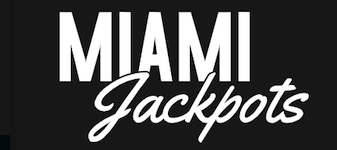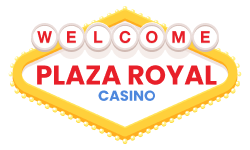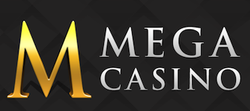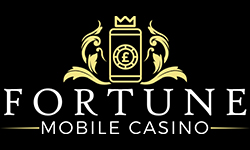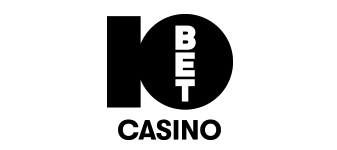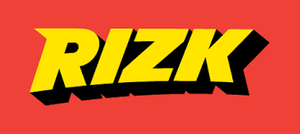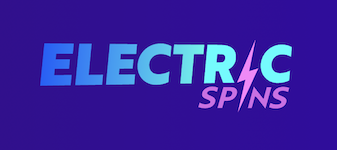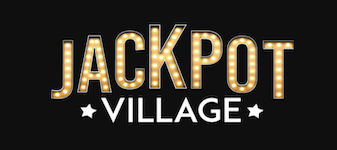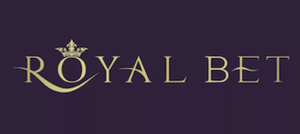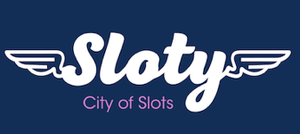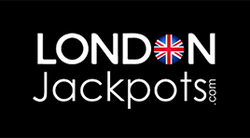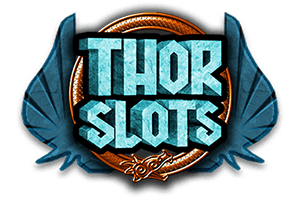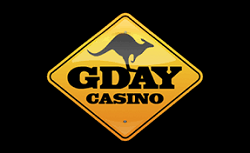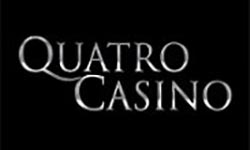Casinos
accepting players from
277
casinos were found
Filters
Clear
Casinos accepting players from
Search
Software Providers
()
+ more
Show less
()
Nothing found
Licences
+ more
Show less
Deposit options
()
+ more
Show less
()
Nothing found
Languages
()
+ more
Show less
View mode
Count per page
277
casinos were found
Clear
Casino Name
ꜜ
ꜛ
Geo
Bonus
Monthly Traffic
ꜜ
ꜛ
Traffic Position
This number shows a website's position in the listing based on its monthly visitor count, ranked from the most to the least visited.
Visit
1
Welcome Offer
50 free spins on the Book of Dead
Read Review
More Info +
Casino
PlayOJO Casino
Bonus
50 free spins on the Book of Dead
Opened Since
2018
Accepts your Geo
 Yes
United Kingdom
Yes
United Kingdom
Allows VPN
No
Accepts Crypto
No
Number of Slots
1000+
Number of Software Developers
38
Payment Card verification
No
ID verification for cashout
No
Min Deposit
£10
Monthly withdrawal limit
£5,000
Max Bet on slots
£100
Max Bet on roulette
£1,800
Max Bet on blackjack
£25,000
Live Dealers Games
Yes
www.playojo.com
1,300,000
2
Welcome Offer
100% up to £100 + 100 bonus spins on Starburst
Read Review
More Info +
Casino
Cosmic spins
Bonus
100% up to £100 + 100 bonus spins on Starburst
Opened Since
2019
Accepts your Geo
 Yes
United Kingdom
Yes
United Kingdom
Allows VPN
Yes
Accepts Crypto
No
Number of Slots
800+
Number of Software Developers
49
Payment Card verification
No
ID verification for cashout
Yes
Min Deposit
£10
Monthly withdrawal limit
undefined
Live Dealers Games
Yes
cosmicspins.com
5,000
3
Welcome Offer
100% up to £50 + 50 freespins on Starburst
Read Review
More Info +
Casino
Casino Luck [UK]
Bonus
100% up to £50 + 50 freespins on Starburst
Opened Since
2011
Accepts your Geo
 Yes
United Kingdom
Yes
United Kingdom
Allows VPN
No
Accepts Crypto
No
Number of Slots
undefined
Number of Software Developers
7
Payment Card verification
No
ID verification for cashout
Yes
Min Deposit
€10
Monthly withdrawal limit
€7,000
Max Bet on slots
€200
Max Bet on roulette
€1,000
Max Bet on blackjack
€200
Live Dealers Games
Yes
www.casinoluck.com
13,000
4
Welcome Offer
100% up to £200
Read Review
More Info +
Casino
Mr Vegas
Bonus
100% up to £200
Opened Since
2017
Accepts your Geo
 Yes
United Kingdom
Yes
United Kingdom
Allows VPN
No
Accepts Crypto
No
Number of Slots
7500+
Number of Software Developers
165
Payment Card verification
No
ID verification for cashout
Yes
Min Deposit
€10
Monthly withdrawal limit
undefined
Live Dealers Games
Yes
www.mrvegas.com
2,300,000
5
Welcome Offer
100% up to £200
Read Review
More Info +
Casino
Videoslots
Bonus
100% up to £200
Opened Since
2011
Accepts your Geo
 Yes
United Kingdom
Yes
United Kingdom
Allows VPN
No
Accepts Crypto
No
Number of Slots
5000+
Number of Software Developers
179
Payment Card verification
Yes
ID verification for cashout
Yes
Min Deposit
€10
Monthly withdrawal limit
€50,000
Live Dealers Games
Yes
www.videoslots.com
2,700,000
6
Welcome Offer
100% up to £1000 +100 free spins Book of Dead and Starburst slots
Read Review
More Info +
Casino
Vegas Mobile Casino
Bonus
100% up to £1000 +100 free spins Book of Dead and Starburst slots
Opened Since
2013
Accepts your Geo
 Yes
United Kingdom
Yes
United Kingdom
Allows VPN
No
Accepts Crypto
No
Number of Slots
800+
Number of Software Developers
22
Payment Card verification
Yes
ID verification for cashout
Yes
Min Deposit
£10
Monthly withdrawal limit
£6,000
Live Dealers Games
No
vegasmobilecasino.co.uk
6,612
7
Welcome Offer
100% up to £10 + 10 free spins on a game of our choice Promo code: AMBER
Read Review
More Info +
Casino
AmberSpins
Bonus
100% up to £10 + 10 free spins on a game of our choice Promo code: AMBER
Opened Since
2021
Accepts your Geo
 Yes
United Kingdom
Yes
United Kingdom
Allows VPN
No
Accepts Crypto
No
Number of Slots
500+
Number of Software Developers
18
Payment Card verification
Yes
ID verification for cashout
Yes
Min Deposit
£10
Monthly withdrawal limit
undefined
Live Dealers Games
No
www.amberspins.com
22,789
8
Welcome Offer
100% up to £50 + 50 Free Spins
Read Review
More Info +
Casino
Miami Jackpots
Bonus
100% up to £50 + 50 Free Spins
Opened Since
2019
Accepts your Geo
 Yes
United Kingdom
Yes
United Kingdom
Allows VPN
No
Accepts Crypto
No
Number of Slots
2500+
Number of Software Developers
11
Payment Card verification
No
ID verification for cashout
Yes
Min Deposit
£10
Monthly withdrawal limit
undefined
Max Bet on slots
£200
Max Bet on roulette
£200
Max Bet on blackjack
£10,000
Live Dealers Games
Yes
miamijackpots.com
5,610
9
Welcome Offer
100% Welcome Bonus up to £/€/$100 + 50 Free Spins on Rainbow Riches Megaways.
Read Review
More Info +
Casino
Jeffbet Casino
Bonus
100% Welcome Bonus up to £/€/$100 + 50 Free Spins on Rainbow Riches Megaways.
Opened Since
2022
Accepts your Geo
 Yes
United Kingdom
Yes
United Kingdom
Allows VPN
No
Accepts Crypto
No
Number of Slots
1000+
Number of Software Developers
40
Payment Card verification
No
ID verification for cashout
No
Min Deposit
£10
Monthly withdrawal limit
£6,000
Live Dealers Games
Yes
jeffbet.com
59,000
10
Welcome Offer
100% up to £100+100FS
Read Review
More Info +
Casino
PlayUK Casino
Bonus
100% up to £100+100FS
Opened Since
2017
Accepts your Geo
 Yes
United Kingdom
Yes
United Kingdom
Allows VPN
No
Accepts Crypto
No
Number of Slots
undefined
Number of Software Developers
25
Payment Card verification
No
ID verification for cashout
No
Min Deposit
€10
Monthly withdrawal limit
undefined
Live Dealers Games
Yes
www.playuk.com
42,000
11
Read Review
More Info +
Casino
Plaza Royal
Bonus
Opened Since
2020
Accepts your Geo
 Yes
United Kingdom
Yes
United Kingdom
Allows VPN
No
Accepts Crypto
No
Number of Slots
undefined
Number of Software Developers
2
Payment Card verification
No
ID verification for cashout
No
Min Deposit
€10
Monthly withdrawal limit
€7,000
Max Bet on slots
€100
Max Bet on roulette
€400
Max Bet on blackjack
€1,500
Live Dealers Games
No
plazaroyal.com
13,000
12
Welcome Offer
£800 + 100 spins (not applicable for UK and DE)
Read Review
More Info +
Casino
Playluck Casino
Bonus
£800 + 100 spins (not applicable for UK and DE)
Opened Since
2020
Accepts your Geo
 Yes
United Kingdom
Yes
United Kingdom
Allows VPN
No
Accepts Crypto
No
Number of Slots
undefined
Number of Software Developers
7
Payment Card verification
No
ID verification for cashout
No
Min Deposit
£10
Monthly withdrawal limit
£7,000
Max Bet on slots
£150
Max Bet on roulette
£500
Max Bet on blackjack
£300
Live Dealers Games
Yes
www.playluck.com
12,000
13
Welcome Offer
1000% up to 6000£
Read Review
More Info +
Casino
777 Cherry
Bonus
1000% up to 6000£
Opened Since
2022
Accepts your Geo
 Yes
United Kingdom
Yes
United Kingdom
Allows VPN
No
Accepts Crypto
No
Number of Slots
850
Number of Software Developers
58
Payment Card verification
No
ID verification for cashout
Yes
Min Deposit
£10
Monthly withdrawal limit
undefined
Live Dealers Games
No
www.777cherry.com
8,900
14
Welcome Offer
500 free spins on Chilli Heat
Read Review
More Info +
Casino
Win British
Bonus
500 free spins on Chilli Heat
Opened Since
2020
Accepts your Geo
 Yes
United Kingdom
Yes
United Kingdom
Allows VPN
No
Accepts Crypto
No
Number of Slots
1000+
Number of Software Developers
undefined
Payment Card verification
No
ID verification for cashout
Yes
Min Deposit
£10
Monthly withdrawal limit
undefined
Live Dealers Games
No
www.winbritish.com
30,000
15
Welcome Offer
250% up to £300 + 200 free spins
Read Review
More Info +
Casino
BetMorph
Bonus
250% up to £300 + 200 free spins
Opened Since
2021
Accepts your Geo
 Yes
United Kingdom
Yes
United Kingdom
Allows VPN
No
Accepts Crypto
No
Number of Slots
2500+
Number of Software Developers
72
Payment Card verification
No
ID verification for cashout
Yes
Min Deposit
£10
Monthly withdrawal limit
£6,000
Live Dealers Games
Yes
www.betmorph.com
444
16
Welcome Offer
100% up to £100 + 50 free spins
Read Review
More Info +
Casino
Metal Casino
Bonus
100% up to £100 + 50 free spins
Opened Since
2017
Accepts your Geo
 Yes
United Kingdom
Yes
United Kingdom
Allows VPN
No
Accepts Crypto
No
Number of Slots
1000+
Number of Software Developers
21
Payment Card verification
No
ID verification for cashout
Yes
Min Deposit
£10
Monthly withdrawal limit
£10,000
Live Dealers Games
Yes
www.metalcasino.com
23,000
17
Welcome Offer
20 Free Spins with your first deposit
Read Review
More Info +
Casino
MrQ Casino
Bonus
20 Free Spins with your first deposit
Opened Since
2018
Accepts your Geo
 Yes
United Kingdom
Yes
United Kingdom
Allows VPN
No
Accepts Crypto
No
Number of Slots
900+
Number of Software Developers
29
Payment Card verification
Yes
ID verification for cashout
Yes
Min Deposit
£10
Monthly withdrawal limit
undefined
Max Bet on slots
£1,000
Max Bet on roulette
£25,000
Max Bet on blackjack
£5,000
Live Dealers Games
Yes
mrq.com
1,700,000
18
Welcome Offer
100% up to £50
Read Review
More Info +
Casino
Slingo Casino
Bonus
100% up to £50
Opened Since
2015
Accepts your Geo
 Yes
United Kingdom
Yes
United Kingdom
Allows VPN
No
Accepts Crypto
No
Number of Slots
1200+
Number of Software Developers
4
Payment Card verification
No
ID verification for cashout
Yes
Min Deposit
£10
Monthly withdrawal limit
undefined
Live Dealers Games
Yes
www.slingo.com
222,000
19
Welcome Offer
100% bonus up to £200 + 20 bonus spins
Read Review
More Info +
Casino
21 Lucky bet
Bonus
100% bonus up to £200 + 20 bonus spins
Opened Since
2022
Accepts your Geo
 Yes
United Kingdom
Yes
United Kingdom
Allows VPN
No
Accepts Crypto
No
Number of Slots
4000+
Number of Software Developers
55
Payment Card verification
Yes
ID verification for cashout
Yes
Min Deposit
£10
Monthly withdrawal limit
undefined
Live Dealers Games
Yes
21luckybet.com
16,788
20
Welcome Offer
100% up to £200+77FS
Read Review
More Info +
Casino
777 Casino
Bonus
100% up to £200+77FS
Opened Since
2015
Accepts your Geo
 Yes
United Kingdom
Yes
United Kingdom
Allows VPN
No
Accepts Crypto
No
Number of Slots
undefined
Number of Software Developers
4
Payment Card verification
No
ID verification for cashout
No
Min Deposit
£10
Monthly withdrawal limit
£30,000
Max Bet on slots
£200
Max Bet on roulette
£300
Max Bet on blackjack
£300
Live Dealers Games
No
play-www.777.com
127,000
21
Welcome Offer
100% up to £333+100FS
Read Review
More Info +
Casino
Yeti Casino (SA+UK)
Bonus
100% up to £333+100FS
Opened Since
2017
Accepts your Geo
 Yes
United Kingdom
Yes
United Kingdom
Allows VPN
No
Accepts Crypto
Yes
Number of Slots
undefined
Number of Software Developers
17
Payment Card verification
No
ID verification for cashout
No
Min Deposit
£10
Monthly withdrawal limit
£100,000
Max Bet on slots
£1,000
Max Bet on roulette
£200
Max Bet on blackjack
£2,000
Live Dealers Games
Yes
www.yeticasino.com
946,574
22
Welcome Offer
Up to $100 Free Play OR Matched deposit up to $600
Read Review
More Info +
Casino
GGPoker
Bonus
Up to $100 Free Play OR Matched deposit up to $600
Opened Since
2014
Accepts your Geo
 Yes
United Kingdom
Yes
United Kingdom
Allows VPN
No
Accepts Crypto
Yes
Number of Slots
1000+
Number of Software Developers
7
Payment Card verification
No
ID verification for cashout
Yes
Min Deposit
$10
Monthly withdrawal limit
$50,000
Live Dealers Games
Yes
ggpoker.com
612,208
23
Welcome Offer
50% up to £100
Read Review
More Info +
Casino
Grosvenor
Bonus
50% up to £100
Opened Since
2022
Accepts your Geo
 Yes
United Kingdom
Yes
United Kingdom
Allows VPN
No
Accepts Crypto
Yes
Number of Slots
1000+
Number of Software Developers
4
Payment Card verification
Yes
ID verification for cashout
Yes
Min Deposit
£5
Monthly withdrawal limit
£200,000
Live Dealers Games
Yes
www.grosvenorcasinos.com
2,340,000
24
Welcome Offer
No Deposit Free Spins on Curse of the Werewol
Read Review
More Info +
Casino
Big Win Vegas
Bonus
No Deposit Free Spins on Curse of the Werewol
Opened Since
2018
Accepts your Geo
 Yes
United Kingdom
Yes
United Kingdom
Allows VPN
No
Accepts Crypto
No
Number of Slots
600+
Number of Software Developers
1
Payment Card verification
Yes
ID verification for cashout
Yes
Min Deposit
£10
Monthly withdrawal limit
undefined
Live Dealers Games
No
www.bigwinvegas.com
10,000
25
Welcome Offer
100% up to C$1,000 + 50 Free Spins
Read Review
More Info +
Casino
Novibet
Bonus
100% up to C$1,000 + 50 Free Spins
Opened Since
2011
Accepts your Geo
 Yes
United Kingdom
Yes
United Kingdom
Allows VPN
No
Accepts Crypto
No
novibet.com
44,700,000
26
Read Review
More Info +
Casino
Luck
Bonus
Opened Since
2021
Accepts your Geo
 Yes
United Kingdom
Yes
United Kingdom
Allows VPN
No
Accepts Crypto
No
Number of Slots
1300+
Number of Software Developers
39
Payment Card verification
No
ID verification for cashout
No
Min Deposit
£10
Monthly withdrawal limit
£1,000,000
Live Dealers Games
Yes
luck.com
651,000
27
Welcome Offer
up to £5 play on all of our Bonus Boss' games
Read Review
More Info +
Casino
Bonus Boss
Bonus
up to £5 play on all of our Bonus Boss' games
Opened Since
2020
Accepts your Geo
 Yes
United Kingdom
Yes
United Kingdom
Allows VPN
No
Accepts Crypto
No
Number of Slots
undefined
Number of Software Developers
1
Payment Card verification
No
ID verification for cashout
No
Min Deposit
£3
Monthly withdrawal limit
undefined
Live Dealers Games
No
www.bonusboss.co.uk
374,000
28
Welcome Offer
100% up to €500 + 200 free spins
Read Review
More Info +
Casino
Mega Casino-UK
Bonus
100% up to €500 + 200 free spins
Opened Since
2018
Accepts your Geo
 Yes
United Kingdom
Yes
United Kingdom
Allows VPN
No
Accepts Crypto
No
Number of Slots
undefined
Number of Software Developers
13
Payment Card verification
No
ID verification for cashout
No
Min Deposit
€20
Monthly withdrawal limit
undefined
Max Bet on slots
€300
Max Bet on roulette
€2,500
Max Bet on blackjack
€300
Live Dealers Games
Yes
www.megacasino.co.uk
33,700
29
Read Review
More Info +
Casino
Planetsportbet Casino
Bonus
Opened Since
2025
Accepts your Geo
 Yes
United Kingdom
Yes
United Kingdom
Allows VPN
No
Accepts Crypto
No
Number of Slots
undefined
Number of Software Developers
undefined
Payment Card verification
No
ID verification for cashout
No
Min Deposit
undefined
Monthly withdrawal limit
undefined
Live Dealers Games
No
planetsportbet.com
30,000
30
Welcome Offer
100% up to £50 + 100 freespins
Read Review
More Info +
Casino
Fruit Kings Casino
Bonus
100% up to £50 + 100 freespins
Opened Since
2013
Accepts your Geo
 Yes
United Kingdom
Yes
United Kingdom
Allows VPN
No
Accepts Crypto
No
Number of Slots
1000+
Number of Software Developers
9
Payment Card verification
No
ID verification for cashout
No
Min Deposit
€10
Monthly withdrawal limit
undefined
Max Bet on slots
€300
Max Bet on roulette
€300
Max Bet on blackjack
€1,800
Live Dealers Games
Yes
www.fruitkings.com
24,000
31
Welcome Offer
100% Up to £/€/$200 with 20 free spins
Read Review
More Info +
Casino
Mogobet Casino
Bonus
100% Up to £/€/$200 with 20 free spins
Opened Since
2017
Accepts your Geo
 Yes
United Kingdom
Yes
United Kingdom
Allows VPN
No
Accepts Crypto
No
Number of Slots
undefined
Number of Software Developers
9
Payment Card verification
Yes
ID verification for cashout
Yes
Min Deposit
€10
Monthly withdrawal limit
€1,000,000
Live Dealers Games
Yes
www.mogobet.com
24,000
32
Welcome Offer
£500Bonus+150FreeSpins
Read Review
More Info +
Casino
Fortune Mobile Casino
Bonus
£500Bonus+150FreeSpins
Opened Since
2019
Accepts your Geo
 Yes
United Kingdom
Yes
United Kingdom
Allows VPN
No
Accepts Crypto
No
Number of Slots
827
Number of Software Developers
43
Payment Card verification
Yes
ID verification for cashout
Yes
Min Deposit
£10
Monthly withdrawal limit
undefined
Live Dealers Games
Yes
www.fortunemobilecasino.co.uk
11,000
33
Welcome Offer
100% up to £50
Read Review
More Info +
Casino
The Hippodrome Online Casino
Bonus
100% up to £50
Opened Since
2014
Accepts your Geo
 Yes
United Kingdom
Yes
United Kingdom
Allows VPN
No
Accepts Crypto
No
Number of Slots
450
Number of Software Developers
9
Payment Card verification
Yes
ID verification for cashout
Yes
Min Deposit
£10
Monthly withdrawal limit
undefined
Live Dealers Games
Yes
www.hippodromeonline.com
2,900
34
Welcome Offer
100% up to £100 & 100 Spins
Read Review
More Info +
Casino
Atlantic Spins
Bonus
100% up to £100 & 100 Spins
Opened Since
2017
Accepts your Geo
 Yes
United Kingdom
Yes
United Kingdom
Allows VPN
No
Accepts Crypto
No
Number of Slots
2500+
Number of Software Developers
37
Payment Card verification
Yes
ID verification for cashout
No
Min Deposit
£10
Monthly withdrawal limit
undefined
Live Dealers Games
Yes
www.atlanticspins.com
5,500
35
Welcome Offer
1000% Matchup Bonus worth up to £2,000!
Read Review
More Info +
Casino
WinWindsor Casino
Bonus
1000% Matchup Bonus worth up to £2,000!
Opened Since
2020
Accepts your Geo
 Yes
United Kingdom
Yes
United Kingdom
Allows VPN
No
Accepts Crypto
No
Number of Slots
undefined
Number of Software Developers
17
Payment Card verification
No
ID verification for cashout
No
Min Deposit
£10
Monthly withdrawal limit
undefined
Live Dealers Games
No
www.winwindsor.com
213
36
Welcome Offer
150 FS
Read Review
More Info +
Casino
Winomania Casino
Bonus
150 FS
Opened Since
2018
Accepts your Geo
 Yes
United Kingdom
Yes
United Kingdom
Allows VPN
No
Accepts Crypto
No
Number of Slots
undefined
Number of Software Developers
3
Payment Card verification
No
ID verification for cashout
No
Min Deposit
£10
Monthly withdrawal limit
undefined
Max Bet on slots
£1,000
Max Bet on roulette
£2,000
Max Bet on blackjack
£400
Live Dealers Games
Yes
www.winomania.co.uk
63,500
37
Welcome Offer
100% up to 100 GBP + 25 free spins
Read Review
More Info +
Casino
10Bet Casino
Bonus
100% up to 100 GBP + 25 free spins
Opened Since
2003
Accepts your Geo
 Yes
United Kingdom
Yes
United Kingdom
Allows VPN
No
Accepts Crypto
No
Number of Slots
undefined
Number of Software Developers
11
Payment Card verification
Yes
ID verification for cashout
Yes
Min Deposit
£10
Monthly withdrawal limit
£50,000
Max Bet on slots
£150
Max Bet on roulette
£5,000
Max Bet on blackjack
£2,500
Live Dealers Games
Yes
10bet.com
6,300,000
38
Welcome Offer
up to 50 free spins on Big Bass Bonanza
Read Review
More Info +
Casino
Dream Jackpot
Bonus
up to 50 free spins on Big Bass Bonanza
Opened Since
2017
Accepts your Geo
 Yes
United Kingdom
Yes
United Kingdom
Allows VPN
No
Accepts Crypto
No
Number of Slots
1600+
Number of Software Developers
40
Payment Card verification
Yes
ID verification for cashout
Yes
Min Deposit
£10
Monthly withdrawal limit
undefined
Live Dealers Games
Yes
www.dreamjackpot.com
66,000
39
Welcome Offer
100% up to £300 + 25 free spins on Starburst
Read Review
More Info +
Casino
Grand Ivy Casino
Bonus
100% up to £300 + 25 free spins on Starburst
Opened Since
2016
Accepts your Geo
 Yes
United Kingdom
Yes
United Kingdom
Allows VPN
No
Accepts Crypto
No
Number of Slots
1000+
Number of Software Developers
104
Payment Card verification
No
ID verification for cashout
Yes
Min Deposit
£20
Monthly withdrawal limit
undefined
Live Dealers Games
Yes
www.grandivy.com
49,000
40
Welcome Offer
£10 + 100% up to £100 + 100 free spins
Read Review
More Info +
Casino
Duelz Casino
Bonus
£10 + 100% up to £100 + 100 free spins
Opened Since
2018
Accepts your Geo
 Yes
United Kingdom
Yes
United Kingdom
Allows VPN
No
Accepts Crypto
No
Number of Slots
1000+
Number of Software Developers
18
Payment Card verification
Yes
ID verification for cashout
Yes
Min Deposit
£20
Monthly withdrawal limit
undefined
Max Bet on slots
£500
Max Bet on roulette
£2,000
Max Bet on blackjack
£3,000
Live Dealers Games
Yes
duelz.com
37,500
41
Welcome Offer
100% up to £50 + 150 free spins
Read Review
More Info +
Casino
Wild Slots
Bonus
100% up to £50 + 150 free spins
Opened Since
2016
Accepts your Geo
 Yes
United Kingdom
Yes
United Kingdom
Allows VPN
No
Accepts Crypto
No
Number of Slots
550
Number of Software Developers
1
Payment Card verification
Yes
ID verification for cashout
Yes
Min Deposit
£10
Monthly withdrawal limit
undefined
Live Dealers Games
No
www.wildslots.com
16,000
42
Welcome Offer
100% up to £100 + 200 spins
Read Review
More Info +
Casino
Slots Heaven
Bonus
100% up to £100 + 200 spins
Opened Since
2012
Accepts your Geo
 Yes
United Kingdom
Yes
United Kingdom
Allows VPN
No
Accepts Crypto
No
Number of Slots
300+
Number of Software Developers
8
Payment Card verification
No
ID verification for cashout
Yes
Min Deposit
£20
Monthly withdrawal limit
£10,000
Max Bet on slots
£300
Max Bet on roulette
£400
Max Bet on blackjack
£25,000
Live Dealers Games
No
slotsheaven.com
1,311
43
Welcome Offer
win up to 500 500 Free Spins on Starburst!
Read Review
More Info +
Casino
123 Spins
Bonus
win up to 500 500 Free Spins on Starburst!
Opened Since
2017
Accepts your Geo
 Yes
United Kingdom
Yes
United Kingdom
Allows VPN
No
Accepts Crypto
No
Number of Slots
1500+
Number of Software Developers
10
Payment Card verification
Yes
ID verification for cashout
Yes
Min Deposit
£10
Monthly withdrawal limit
undefined
Live Dealers Games
No
www.123spins.com
1,900
44
Welcome Offer
Win up to 500 free spins
Read Review
More Info +
Casino
Buddy Slots
Bonus
Win up to 500 free spins
Opened Since
2017
Accepts your Geo
 Yes
United Kingdom
Yes
United Kingdom
Allows VPN
No
Accepts Crypto
No
Number of Slots
300+
Number of Software Developers
62
Payment Card verification
Yes
ID verification for cashout
Yes
Min Deposit
£10
Monthly withdrawal limit
undefined
Live Dealers Games
No
www.buddyslots.com
1,000
45
Welcome Offer
100% up to £300 + 30 free spins or 10 free bet
Read Review
More Info +
Casino
BetReels
Bonus
100% up to £300 + 30 free spins or 10 free bet
Opened Since
2016
Accepts your Geo
 Yes
United Kingdom
Yes
United Kingdom
Allows VPN
No
Accepts Crypto
No
Number of Slots
4000+
Number of Software Developers
94
Payment Card verification
No
ID verification for cashout
Yes
Min Deposit
£10
Monthly withdrawal limit
undefined
Live Dealers Games
Yes
www.betreels.com
8,900
46
Welcome Offer
100% DEPOSIT MATCH BONUS + 20 BONUS SPINS
Read Review
More Info +
Casino
Peachy games
Bonus
100% DEPOSIT MATCH BONUS + 20 BONUS SPINS
Opened Since
2019
Accepts your Geo
 Yes
United Kingdom
Yes
United Kingdom
Allows VPN
No
Accepts Crypto
No
Number of Slots
1000+
Number of Software Developers
23
Payment Card verification
Yes
ID verification for cashout
Yes
Min Deposit
£10
Monthly withdrawal limit
£20,000
Live Dealers Games
Yes
www.peachygames.com
25,000
47
Welcome Offer
up to £120
Read Review
More Info +
Casino
Mecca Bingo
Bonus
up to £120
Opened Since
2019
Accepts your Geo
 Yes
United Kingdom
Yes
United Kingdom
Allows VPN
No
Accepts Crypto
No
Number of Slots
1000+
Number of Software Developers
8
Payment Card verification
Yes
ID verification for cashout
Yes
Min Deposit
£5
Monthly withdrawal limit
undefined
Live Dealers Games
No
www.meccabingo.com
1,300,000
48
Welcome Offer
100% up to £500 + 200 freespins
Read Review
More Info +
Casino
The Pools Casino
Bonus
100% up to £500 + 200 freespins
Opened Since
1923
Accepts your Geo
 Yes
United Kingdom
Yes
United Kingdom
Allows VPN
No
Accepts Crypto
No
Number of Slots
930
Number of Software Developers
8
Payment Card verification
Yes
ID verification for cashout
Yes
Min Deposit
£5
Monthly withdrawal limit
undefined
Max Bet on slots
£300
Max Bet on roulette
£25,000
Max Bet on blackjack
£1,500
Live Dealers Games
Yes
www.thepools.com
844,000
49
Welcome Offer
100% up to £50+50FS
Read Review
More Info +
Casino
Rizk Casino
Bonus
100% up to £50+50FS
Opened Since
2017
Accepts your Geo
 Yes
United Kingdom
Yes
United Kingdom
Allows VPN
No
Accepts Crypto
No
Number of Slots
undefined
Number of Software Developers
20
Payment Card verification
No
ID verification for cashout
No
Min Deposit
£10
Monthly withdrawal limit
undefined
Max Bet on slots
£500
Max Bet on roulette
£2,500
Max Bet on blackjack
£250
Live Dealers Games
Yes
rizk.com
636,000
50
Welcome Offer
10 £ + 110 % up to 50 £ + 50 freespins
Read Review
More Info +
Casino
Jazzy Spins
Bonus
10 £ + 110 % up to 50 £ + 50 freespins
Opened Since
2018
Accepts your Geo
 Yes
United Kingdom
Yes
United Kingdom
Allows VPN
No
Accepts Crypto
No
Number of Slots
300+
Number of Software Developers
9
Payment Card verification
No
ID verification for cashout
Yes
Min Deposit
£10
Monthly withdrawal limit
undefined
Max Bet on slots
£300
Max Bet on roulette
£1,500
Max Bet on blackjack
£1,000
Live Dealers Games
No
www.jazzyspins.com
40,870
51
Welcome Offer
10$ + 100% up to 200$ + 100 spins
Read Review
More Info +
Casino
Mrmega
Bonus
10$ + 100% up to 200$ + 100 spins
Opened Since
2010
Accepts your Geo
 Yes
United Kingdom
Yes
United Kingdom
Allows VPN
No
Accepts Crypto
No
Number of Slots
undefined
Number of Software Developers
18
Payment Card verification
No
ID verification for cashout
Yes
Min Deposit
€10
Monthly withdrawal limit
€90,000
Max Bet on slots
€500
Max Bet on roulette
€500
Max Bet on blackjack
€25,000
Live Dealers Games
No
mrmega.com
36,000
52
Welcome Offer
20 £ + 100 % up to 50 £ + 36 free spins
Read Review
More Info +
Casino
Ice36 Casino
Bonus
20 £ + 100 % up to 50 £ + 36 free spins
Opened Since
2012
Accepts your Geo
 Yes
United Kingdom
Yes
United Kingdom
Allows VPN
No
Accepts Crypto
No
Number of Slots
undefined
Number of Software Developers
29
Payment Card verification
No
ID verification for cashout
No
Min Deposit
£10
Monthly withdrawal limit
£10,000
Max Bet on slots
£300
Max Bet on roulette
£1,000
Max Bet on blackjack
£1,800
Live Dealers Games
Yes
www.ice36.co.uk
36,000
53
Welcome Offer
20 £ + 100 % up to 500 £ + 30 Extra spins
Read Review
More Info +
Casino
Temple Nile
Bonus
20 £ + 100 % up to 500 £ + 30 Extra spins
Opened Since
2018
Accepts your Geo
 Yes
United Kingdom
Yes
United Kingdom
Allows VPN
No
Accepts Crypto
No
Number of Slots
undefined
Number of Software Developers
76
Payment Card verification
No
ID verification for cashout
Yes
Min Deposit
£20
Monthly withdrawal limit
£10,000
Max Bet on slots
£200
Max Bet on roulette
£1,000
Max Bet on blackjack
£1,500
Live Dealers Games
Yes
templenile.com
25,568
54
Welcome Offer
200% Up To £20 & 100 Free Spins
Read Review
More Info +
Casino
Electric Spins
Bonus
200% Up To £20 & 100 Free Spins
Opened Since
2021
Accepts your Geo
 Yes
United Kingdom
Yes
United Kingdom
Allows VPN
No
Accepts Crypto
No
Number of Slots
undefined
Number of Software Developers
33
Payment Card verification
No
ID verification for cashout
Yes
Min Deposit
£10
Monthly withdrawal limit
£10,000
Max Bet on slots
£1,000
Max Bet on roulette
£400
Max Bet on blackjack
£25,000
Live Dealers Games
Yes
www.electricspins.com
25,866
55
Welcome Offer
Spin the Mega Reel and Win Up to 500 Free Spins
Read Review
More Info +
Casino
Swanky Bingo
Bonus
Spin the Mega Reel and Win Up to 500 Free Spins
Opened Since
2016
Accepts your Geo
 Yes
United Kingdom
Yes
United Kingdom
Allows VPN
No
Accepts Crypto
No
Number of Slots
1000+
Number of Software Developers
44
Payment Card verification
No
ID verification for cashout
No
Min Deposit
£10
Monthly withdrawal limit
£10,000
Live Dealers Games
Yes
www.swankybingo.com
2,779
56
Welcome Offer
100% UP TO £200 + 20 FREE SPINS ON BOOK OF DEAD
Read Review
More Info +
Casino
SlotLux
Bonus
100% UP TO £200 + 20 FREE SPINS ON BOOK OF DEAD
Opened Since
2023
Accepts your Geo
 Yes
United Kingdom
Yes
United Kingdom
Allows VPN
No
Accepts Crypto
No
Number of Slots
2500+
Number of Software Developers
63
Payment Card verification
No
ID verification for cashout
Yes
Min Deposit
£10
Monthly withdrawal limit
undefined
Live Dealers Games
Yes
lobby.slotlux.com
1,500
57
Welcome Offer
UP TO £100 + 100 FREE SPINS
Read Review
More Info +
Casino
Slotsnplay
Bonus
UP TO £100 + 100 FREE SPINS
Opened Since
2021
Accepts your Geo
 Yes
United Kingdom
Yes
United Kingdom
Allows VPN
No
Accepts Crypto
No
Number of Slots
1000+
Number of Software Developers
63
Payment Card verification
No
ID verification for cashout
Yes
Min Deposit
€10
Monthly withdrawal limit
€7,000
Max Bet on slots
€200
Max Bet on roulette
€300
Max Bet on blackjack
€1,500
Live Dealers Games
Yes
slotsnplay.com
7,700
58
Welcome Offer
200€ or other currency equivalent + 100 free spins
Read Review
More Info +
Casino
MrRex
Bonus
200€ or other currency equivalent + 100 free spins
Opened Since
2021
Accepts your Geo
 Yes
United Kingdom
Yes
United Kingdom
Allows VPN
No
Accepts Crypto
No
Number of Slots
2000+
Number of Software Developers
44
Payment Card verification
No
ID verification for cashout
No
Min Deposit
£10
Monthly withdrawal limit
£90,000
Max Bet on slots
£1,000
Max Bet on roulette
£2,500
Max Bet on blackjack
£5,000
Live Dealers Games
Yes
mrrex.com
7,800
59
Welcome Offer
100% up to £50
Read Review
More Info +
Casino
Casushi
Bonus
100% up to £50
Opened Since
2010
Accepts your Geo
 Yes
United Kingdom
Yes
United Kingdom
Allows VPN
No
Accepts Crypto
No
Number of Slots
1000+
Number of Software Developers
23
Payment Card verification
Yes
ID verification for cashout
Yes
Min Deposit
£10
Monthly withdrawal limit
undefined
Live Dealers Games
Yes
www.casushi.com
134,000
60
Welcome Offer
20 £ + 200 % up to 500 £ + 50 free spins
Read Review
More Info +
Casino
Jackpot Village
Bonus
20 £ + 200 % up to 500 £ + 50 free spins
Opened Since
2018
Accepts your Geo
 Yes
United Kingdom
Yes
United Kingdom
Allows VPN
No
Accepts Crypto
No
Number of Slots
undefined
Number of Software Developers
102
Payment Card verification
No
ID verification for cashout
No
Min Deposit
£20
Monthly withdrawal limit
undefined
Max Bet on slots
£200
Max Bet on roulette
£5,000
Max Bet on blackjack
£500
Live Dealers Games
Yes
www.jackpotvillage.com
43,000
61
Welcome Offer
win up to £6000
Read Review
More Info +
Casino
StarWins
Bonus
win up to £6000
Opened Since
2020
Accepts your Geo
 Yes
United Kingdom
Yes
United Kingdom
Allows VPN
No
Accepts Crypto
No
Number of Slots
500+
Number of Software Developers
30
Payment Card verification
Yes
ID verification for cashout
Yes
Min Deposit
£5
Monthly withdrawal limit
undefined
Live Dealers Games
Yes
www.starwins.co.uk
13,000
62
Welcome Offer
100% up to €50+50FS
Read Review
More Info +
Casino
Royalbet
Bonus
100% up to €50+50FS
Opened Since
2019
Accepts your Geo
 Yes
United Kingdom
Yes
United Kingdom
Allows VPN
No
Accepts Crypto
No
Number of Slots
undefined
Number of Software Developers
11
Payment Card verification
No
ID verification for cashout
No
Min Deposit
£10
Monthly withdrawal limit
£100,000
Live Dealers Games
No
www.royalbet.com
8,005,228
63
Welcome Offer
100% up to €200+100FS
Read Review
More Info +
Casino
Mr.Play Casino
Bonus
100% up to €200+100FS
Opened Since
2017
Accepts your Geo
 Yes
United Kingdom
Yes
United Kingdom
Allows VPN
No
Accepts Crypto
No
Number of Slots
undefined
Number of Software Developers
33
Payment Card verification
No
ID verification for cashout
No
Min Deposit
€25
Monthly withdrawal limit
€10,000
Max Bet on slots
€300
Max Bet on roulette
€25,000
Max Bet on blackjack
€500
Live Dealers Games
Yes
mrplay.com
82,000
64
Welcome Offer
100% up to €1,500 + 150 Free Spins
Read Review
More Info +
Casino
playzee
Bonus
100% up to €1,500 + 150 Free Spins
Opened Since
2018
Accepts your Geo
 Yes
United Kingdom
Yes
United Kingdom
Allows VPN
No
Accepts Crypto
No
Number of Slots
1000+
Number of Software Developers
131
Payment Card verification
No
ID verification for cashout
Yes
Min Deposit
€20
Monthly withdrawal limit
€2,500
Live Dealers Games
Yes
www.playzee.com
17,200
65
Welcome Offer
100% upto 100 + 100 free spins on Starburst
Read Review
More Info +
Casino
Plush Casino
Bonus
100% upto 100 + 100 free spins on Starburst
Opened Since
2017
Accepts your Geo
 Yes
United Kingdom
Yes
United Kingdom
Allows VPN
No
Accepts Crypto
No
Number of Slots
1000+
Number of Software Developers
21
Payment Card verification
No
ID verification for cashout
No
Min Deposit
£10
Monthly withdrawal limit
£10,000
Live Dealers Games
No
plushcasino.com
8,501
66
Welcome Offer
$1500 & 300 Free Spins!
Read Review
More Info +
Casino
Sloty Casino
Bonus
$1500 & 300 Free Spins!
Opened Since
2017
Accepts your Geo
 Yes
United Kingdom
Yes
United Kingdom
Allows VPN
No
Accepts Crypto
Yes
Number of Slots
undefined
Number of Software Developers
6
Payment Card verification
No
ID verification for cashout
No
Min Deposit
€10
Monthly withdrawal limit
€22,000
Max Bet on slots
€500
Max Bet on roulette
€25,000
Max Bet on blackjack
€1,000
Live Dealers Games
Yes
www.sloty.com
5,000
67
Welcome Offer
500 Free Spins on Starburst
Read Review
More Info +
Casino
Incrediblespins Casino
Bonus
500 Free Spins on Starburst
Opened Since
2019
Accepts your Geo
 Yes
United Kingdom
Yes
United Kingdom
Allows VPN
No
Accepts Crypto
No
Number of Slots
undefined
Number of Software Developers
13
Payment Card verification
Yes
ID verification for cashout
Yes
Min Deposit
£5
Monthly withdrawal limit
£10,000
Max Bet on slots
£300
Max Bet on roulette
£10,000
Max Bet on blackjack
£400
Live Dealers Games
Yes
incrediblespins.co.uk
2,000
68
Welcome Offer
up to €100
Read Review
More Info +
Casino
Giant Wins Casino
Bonus
up to €100
Opened Since
2019
Accepts your Geo
 Yes
United Kingdom
Yes
United Kingdom
Allows VPN
No
Accepts Crypto
No
Number of Slots
undefined
Number of Software Developers
23
Payment Card verification
No
ID verification for cashout
No
Min Deposit
€10
Monthly withdrawal limit
€10,000
Max Bet on slots
€150
Max Bet on roulette
€1,800
Max Bet on blackjack
€400
Live Dealers Games
Yes
www.giantcasino.com
1,100
69
Welcome Offer
100% Up To £200 + 20 FS
Read Review
More Info +
Casino
SlotSite.com Casino
Bonus
100% Up To £200 + 20 FS
Opened Since
2019
Accepts your Geo
 Yes
United Kingdom
Yes
United Kingdom
Allows VPN
No
Accepts Crypto
No
Number of Slots
2500+
Number of Software Developers
26
Payment Card verification
No
ID verification for cashout
Yes
Min Deposit
£10
Monthly withdrawal limit
£6,000
Live Dealers Games
Yes
casino.slotsite.com
43,000
70
Welcome Offer
100% up to £100 + 20 free spins Book of Dead
Read Review
More Info +
Casino
Cazebo
Bonus
100% up to £100 + 20 free spins Book of Dead
Opened Since
2021
Accepts your Geo
 Yes
United Kingdom
Yes
United Kingdom
Allows VPN
No
Accepts Crypto
No
Number of Slots
1000+
Number of Software Developers
55
Payment Card verification
Yes
ID verification for cashout
Yes
Min Deposit
£10
Monthly withdrawal limit
undefined
Live Dealers Games
Yes
www.cazebo.com
10,000
71
Welcome Offer
150% up to £400 + 20 FS
Read Review
More Info +
Casino
Lucky Thrillz Casino
Bonus
150% up to £400 + 20 FS
Opened Since
2020
Accepts your Geo
 Yes
United Kingdom
Yes
United Kingdom
Allows VPN
No
Accepts Crypto
No
Number of Slots
undefined
Number of Software Developers
27
Payment Card verification
No
ID verification for cashout
No
Min Deposit
£20
Monthly withdrawal limit
£7,000
Max Bet on slots
£1,000
Max Bet on roulette
£400
Max Bet on blackjack
£25,000
Live Dealers Games
Yes
www.luckythrillz.com
4,729
72
Welcome Offer
Register to receive 10 FREE Spins
Read Review
More Info +
Casino
London Jackpots
Bonus
Register to receive 10 FREE Spins
Opened Since
2018
Accepts your Geo
 Yes
United Kingdom
Yes
United Kingdom
Allows VPN
No
Accepts Crypto
No
Number of Slots
2000+
Number of Software Developers
71
Payment Card verification
Yes
ID verification for cashout
Yes
Min Deposit
£10
Monthly withdrawal limit
undefined
Live Dealers Games
Yes
www.londonjackpots.com
4,000
73
Welcome Offer
100% up to 150$£E + 50FS
Read Review
More Info +
Casino
Betiton
Bonus
100% up to 150$£E + 50FS
Opened Since
2020
Accepts your Geo
 Yes
United Kingdom
Yes
United Kingdom
Allows VPN
No
Accepts Crypto
No
Number of Slots
undefined
Number of Software Developers
9
Payment Card verification
No
ID verification for cashout
No
Min Deposit
€10
Monthly withdrawal limit
€7,000
Live Dealers Games
No
betiton.com
959,631
74
Welcome Offer
BET £10 GET £50 CASINO BONUS
Read Review
More Info +
Casino
Coral Casino
Bonus
BET £10 GET £50 CASINO BONUS
Opened Since
1926
Accepts your Geo
 Yes
United Kingdom
Yes
United Kingdom
Allows VPN
No
Accepts Crypto
No
Number of Slots
undefined
Number of Software Developers
14
Payment Card verification
No
ID verification for cashout
No
Min Deposit
£10
Monthly withdrawal limit
£10,000
Max Bet on slots
£300
Max Bet on roulette
£400
Max Bet on blackjack
£500
Live Dealers Games
No
www.coral.co.uk
7,582,000
75
Welcome Offer
100% up to £300+30 FS
Read Review
More Info +
Casino
Casumo Casino
Bonus
100% up to £300+30 FS
Opened Since
2012
Accepts your Geo
 Yes
United Kingdom
Yes
United Kingdom
Allows VPN
No
Accepts Crypto
No
Number of Slots
undefined
Number of Software Developers
16
Payment Card verification
No
ID verification for cashout
No
Min Deposit
£10
Monthly withdrawal limit
undefined
Max Bet on slots
£100
Max Bet on roulette
£1,500
Max Bet on blackjack
£1,500
Live Dealers Games
Yes
www.casumo.com
1,900,000
76
Welcome Offer
Up to £5000 + 50 Bonus Spins
Read Review
More Info +
Casino
Casimba Casino
Bonus
Up to £5000 + 50 Bonus Spins
Opened Since
2017
Accepts your Geo
 Yes
United Kingdom
Yes
United Kingdom
Allows VPN
No
Accepts Crypto
No
Number of Slots
undefined
Number of Software Developers
99
Payment Card verification
No
ID verification for cashout
No
Min Deposit
£20
Monthly withdrawal limit
£20,000
Max Bet on slots
£300
Max Bet on roulette
£5,000
Max Bet on blackjack
£300
Live Dealers Games
Yes
www.casimba.com
95,000
77
Welcome Offer
Up to 1000% bonus + 300 free spins
Read Review
More Info +
Casino
Hot Streak
Bonus
Up to 1000% bonus + 300 free spins
Opened Since
2022
Accepts your Geo
 Yes
United Kingdom
Yes
United Kingdom
Allows VPN
No
Accepts Crypto
No
Number of Slots
1500+
Number of Software Developers
45
Payment Card verification
No
ID verification for cashout
Yes
Min Deposit
£10
Monthly withdrawal limit
£10,000
Live Dealers Games
Yes
casino.hotstreakcasino.com
73,000
78
Read Review
More Info +
Casino
Betsson Casino
Bonus
Opened Since
2003
Accepts your Geo
 Yes
United Kingdom
Yes
United Kingdom
Allows VPN
No
Accepts Crypto
No
Number of Slots
undefined
Number of Software Developers
1
Payment Card verification
Yes
ID verification for cashout
Yes
Min Deposit
€10
Monthly withdrawal limit
undefined
Live Dealers Games
No
www.betsson.com
10,990,000
79
Welcome Offer
100% up to £200
Read Review
More Info +
Casino
Jackpot Paradise
Bonus
100% up to £200
Opened Since
2012
Accepts your Geo
 Yes
United Kingdom
Yes
United Kingdom
Allows VPN
No
Accepts Crypto
No
Number of Slots
undefined
Number of Software Developers
23
Payment Card verification
No
ID verification for cashout
No
Min Deposit
€10
Monthly withdrawal limit
€6,000
Max Bet on slots
€500
Max Bet on roulette
€200
Max Bet on blackjack
€1,800
Live Dealers Games
No
www.jackpotparadise.com
7,800
80
Welcome Offer
UK offer: 100% up to £50 + 50 FS on Book of Dead
Read Review
More Info +
Casino
Swift Casino
Bonus
UK offer: 100% up to £50 + 50 FS on Book of Dead
Opened Since
2020
Accepts your Geo
 Yes
United Kingdom
Yes
United Kingdom
Allows VPN
No
Accepts Crypto
No
Number of Slots
undefined
Number of Software Developers
39
Payment Card verification
No
ID verification for cashout
No
Min Deposit
undefined
Monthly withdrawal limit
€10,000
Max Bet on slots
€150
Max Bet on roulette
€2,500
Max Bet on blackjack
€500
Live Dealers Games
Yes
www.swiftcasino.com
55,374
81
Welcome Offer
£30 Bingo + 100 Free Spins
Read Review
More Info +
Casino
Heart Bingo
Bonus
£30 Bingo + 100 Free Spins
Opened Since
2016
Accepts your Geo
 Yes
United Kingdom
Yes
United Kingdom
Allows VPN
No
Accepts Crypto
No
Number of Slots
100+
Number of Software Developers
6
Payment Card verification
No
ID verification for cashout
No
Min Deposit
£10
Monthly withdrawal limit
undefined
Live Dealers Games
No
www.heartbingo.co.uk
667,000
82
Welcome Offer
100% up to €200 bonus plus 100 free spins
Read Review
More Info +
Casino
Neptune Play
Bonus
100% up to €200 bonus plus 100 free spins
Opened Since
2020
Accepts your Geo
 Yes
United Kingdom
Yes
United Kingdom
Allows VPN
No
Accepts Crypto
No
Number of Slots
550
Number of Software Developers
16
Payment Card verification
No
ID verification for cashout
No
Min Deposit
£10
Monthly withdrawal limit
undefined
Max Bet on slots
£1,000
Max Bet on roulette
£3,000
Max Bet on blackjack
£3,000
Live Dealers Games
Yes
www.neptuneplay.com
209,000
83
Welcome Offer
100% up to £50
Read Review
More Info +
Casino
Lord Ping Casino
Bonus
100% up to £50
Opened Since
2020
Accepts your Geo
 Yes
United Kingdom
Yes
United Kingdom
Allows VPN
No
Accepts Crypto
No
Number of Slots
650
Number of Software Developers
5
Payment Card verification
No
ID verification for cashout
Yes
Min Deposit
£10
Monthly withdrawal limit
£10,000
Live Dealers Games
Yes
www.lordping.co.uk
37,000
84
Read Review
More Info +
Casino
Leovegas Casino
Bonus
Opened Since
2019
Accepts your Geo
 Yes
United Kingdom
Yes
United Kingdom
Allows VPN
No
Accepts Crypto
No
www.leovegas.com
30,000,000
85
Welcome Offer
Up to 200£+ 100 Spins
Read Review
More Info +
Casino
HeySpin Casino
Bonus
Up to 200£+ 100 Spins
Opened Since
2020
Accepts your Geo
 Yes
United Kingdom
Yes
United Kingdom
Allows VPN
No
Accepts Crypto
No
Number of Slots
1200+
Number of Software Developers
29
Payment Card verification
No
ID verification for cashout
No
Min Deposit
€10
Monthly withdrawal limit
€7,000
Live Dealers Games
Yes
www.heyspin.com
319,000
86
Welcome Offer
100% upto £/$/€200
Read Review
More Info +
Casino
Vegas Paradise Casino
Bonus
100% upto £/$/€200
Opened Since
2014
Accepts your Geo
 Yes
United Kingdom
Yes
United Kingdom
Allows VPN
No
Accepts Crypto
No
Number of Slots
undefined
Number of Software Developers
16
Payment Card verification
No
ID verification for cashout
No
Min Deposit
€10
Monthly withdrawal limit
€6,000
Max Bet on slots
€500
Max Bet on roulette
€3,000
Max Bet on blackjack
€2,000
Live Dealers Games
No
www.vegasparadise.com
11,000
87
Welcome Offer
Up to £10+10FS
Read Review
More Info +
Casino
KaiserSlots Casino
Bonus
Up to £10+10FS
Opened Since
2008
Accepts your Geo
 Yes
United Kingdom
Yes
United Kingdom
Allows VPN
No
Accepts Crypto
No
Number of Slots
undefined
Number of Software Developers
7
Payment Card verification
No
ID verification for cashout
No
Min Deposit
€10
Monthly withdrawal limit
undefined
Live Dealers Games
Yes
kaiserslots.com
11,000
88
Welcome Offer
100% up to £200
Read Review
More Info +
Casino
Chelsea Palace
Bonus
100% up to £200
Opened Since
2016
Accepts your Geo
 Yes
United Kingdom
Yes
United Kingdom
Allows VPN
No
Accepts Crypto
No
Number of Slots
undefined
Number of Software Developers
23
Payment Card verification
No
ID verification for cashout
No
Min Deposit
€10
Monthly withdrawal limit
undefined
Live Dealers Games
Yes
www.chelseapalace.com
6,969
89
Welcome Offer
WIN UP TO 500 FREE SPINS ON VIKINGS GO BERZERK
Read Review
More Info +
Casino
Thor Slots
Bonus
WIN UP TO 500 FREE SPINS ON VIKINGS GO BERZERK
Opened Since
2018
Accepts your Geo
 Yes
United Kingdom
Yes
United Kingdom
Allows VPN
No
Accepts Crypto
No
Number of Slots
1736
Number of Software Developers
42
Payment Card verification
Yes
ID verification for cashout
Yes
Min Deposit
£10
Monthly withdrawal limit
£250,000
Live Dealers Games
Yes
www.thorslots.com
2,400
90
Welcome Offer
JOIN AND GET UP TO 100 FREE SPINS
Read Review
More Info +
Casino
Boylesports
Bonus
JOIN AND GET UP TO 100 FREE SPINS
Opened Since
2007
Accepts your Geo
 Yes
United Kingdom
Yes
United Kingdom
Allows VPN
No
Accepts Crypto
No
Number of Slots
1500+
Number of Software Developers
61
Payment Card verification
Yes
ID verification for cashout
Yes
Min Deposit
£5
Monthly withdrawal limit
£15,000,000
Live Dealers Games
No
www.boylesports.com
3,820,000
91
Welcome Offer
Bet £10 Get £20 in Free Bets
Read Review
More Info +
Casino
Virgin Bet
Bonus
Bet £10 Get £20 in Free Bets
Opened Since
2019
Accepts your Geo
 Yes
United Kingdom
Yes
United Kingdom
Allows VPN
No
Accepts Crypto
No
Number of Slots
undefined
Number of Software Developers
13
Payment Card verification
No
ID verification for cashout
No
Min Deposit
£5
Monthly withdrawal limit
undefined
Live Dealers Games
Yes
www.virginbet.com
1,800,000
92
Welcome Offer
Use code COMMFREE to trade with 0% for 60 days
Read Review
More Info +
Casino
Smarkets
Bonus
Use code COMMFREE to trade with 0% for 60 days
Opened Since
2010
Accepts your Geo
 Yes
United Kingdom
Yes
United Kingdom
Allows VPN
No
Accepts Crypto
No
Number of Slots
70
Number of Software Developers
undefined
Payment Card verification
Yes
ID verification for cashout
Yes
Min Deposit
£10
Monthly withdrawal limit
£1,000,000
Live Dealers Games
No
smarkets.com
1,800,000
93
Welcome Offer
Up to 500 bonuses + 150 free spins
Read Review
More Info +
Casino
Griffon Casino
Bonus
Up to 500 bonuses + 150 free spins
Opened Since
2020
Accepts your Geo
 Yes
United Kingdom
Yes
United Kingdom
Allows VPN
No
Accepts Crypto
No
Number of Slots
800+
Number of Software Developers
8
Payment Card verification
Yes
ID verification for cashout
Yes
Min Deposit
£10
Monthly withdrawal limit
£30,000
Max Bet on slots
£2,000
Max Bet on roulette
£2,000
Live Dealers Games
No
griffoncasino.com
75,000
94
Welcome Offer
200% up to £100 + 20 free spins
Read Review
More Info +
Casino
Bucky Bingo
Bonus
200% up to £100 + 20 free spins
Opened Since
2008
Accepts your Geo
 Yes
United Kingdom
Yes
United Kingdom
Allows VPN
No
Accepts Crypto
No
Number of Slots
1000+
Number of Software Developers
12
Payment Card verification
No
ID verification for cashout
Yes
Min Deposit
£5
Monthly withdrawal limit
undefined
Live Dealers Games
No
www.buckybingo.co.uk
18,000
95
Welcome Offer
up to £500 + 50 bonus spins
Read Review
More Info +
Casino
G´Day Casino
Bonus
up to £500 + 50 bonus spins
Opened Since
2017
Accepts your Geo
 Yes
United Kingdom
Yes
United Kingdom
Allows VPN
No
Accepts Crypto
No
Number of Slots
undefined
Number of Software Developers
15
Payment Card verification
Yes
ID verification for cashout
Yes
Min Deposit
£20
Monthly withdrawal limit
undefined
Live Dealers Games
Yes
www.gdaycasino.com
33,000
96
Welcome Offer
100% UP TO £200 + 100 SPINS
Read Review
More Info +
Casino
Luckster
Bonus
100% UP TO £200 + 100 SPINS
Opened Since
2022
Accepts your Geo
 Yes
United Kingdom
Yes
United Kingdom
Allows VPN
No
Accepts Crypto
No
Number of Slots
3000+
Number of Software Developers
51
Payment Card verification
No
ID verification for cashout
Yes
Min Deposit
£10
Monthly withdrawal limit
undefined
Live Dealers Games
Yes
www.luckster.com
23,000
97
Welcome Offer
100% up to €100 + 50 free spins
Read Review
More Info +
Casino
Drueck Glueck
Bonus
100% up to €100 + 50 free spins
Opened Since
2017
Accepts your Geo
 Yes
United Kingdom
Yes
United Kingdom
Allows VPN
No
Accepts Crypto
No
www.drueckglueck.com
15,630
98
Welcome Offer
Receive up to £1000 on your first 5 deposits:
Read Review
More Info +
Casino
Luxury Casino
Bonus
Receive up to £1000 on your first 5 deposits:
Opened Since
2001
Accepts your Geo
 Yes
United Kingdom
Yes
United Kingdom
Allows VPN
No
Accepts Crypto
No
Number of Slots
550
Number of Software Developers
2
Payment Card verification
Yes
ID verification for cashout
Yes
Min Deposit
£10
Monthly withdrawal limit
undefined
Live Dealers Games
Yes
www.luxurycasino.co.uk
11,000
99
Welcome Offer
100 free spins
Read Review
More Info +
Casino
Prime Casino
Bonus
100 free spins
Opened Since
2005
Accepts your Geo
 Yes
United Kingdom
Yes
United Kingdom
Allows VPN
No
Accepts Crypto
No
Number of Slots
2000+
Number of Software Developers
7
Payment Card verification
Yes
ID verification for cashout
No
Min Deposit
£10
Monthly withdrawal limit
£10,000
Live Dealers Games
Yes
www.primecasino.co.uk
4,000
100
Welcome Offer
up to £100 + 700 free spins
Read Review
More Info +
Casino
Quatro Casino
Bonus
up to £100 + 700 free spins
Opened Since
2008
Accepts your Geo
 Yes
United Kingdom
Yes
United Kingdom
Allows VPN
No
Accepts Crypto
No
Number of Slots
1000+
Number of Software Developers
5
Payment Card verification
Yes
ID verification for cashout
Yes
Min Deposit
£10
Monthly withdrawal limit
£170,000
Live Dealers Games
Yes
www.quatrocasino.co.uk
5,582
No casinos match your search.
100 / 277
36%


![Casino Luck [UK] Casino Luck [UK]](/static/media/images/cover.30388174.png.webp)


![Casino Luck [UK] Casino Luck [UK]](/static/media/images/cover.30388174.png)




